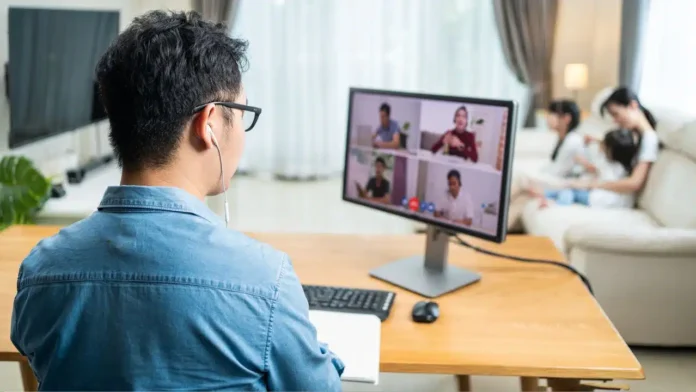In today’s competitive job market, small businesses face unique challenges in attracting and selecting top talent. Traditional hiring methods can be time-consuming and resource-intensive, often leading to delays in filling critical positions. One way interview software offers a modern solution to streamline the recruitment process, enhance candidate evaluation, and reduce hiring costs.
Table of contents
Understanding “One Way” Software
One way interview software enables candidates to record responses to pre-set interview questions at their convenience. Unlike traditional interviews, this asynchronous approach allows employers to review submissions on their own schedule, eliminating the need for coordinating live meetings. This flexibility is particularly beneficial for small businesses with limited HR resources.
Benefits of One-Way Interview Software for Small Businesses
1. Time and Cost Efficiency
Implementing one-way interviews can significantly reduce the time and resources required for initial candidate screening. By allowing candidates to record responses independently, employers can quickly assess suitability without the logistical challenges of scheduling live interviews. This efficiency leads to faster hiring decisions and reduced costs associated with prolonged vacancies.
2. Enhanced Candidate Evaluation
One-way interviews provide deeper insights into candidates beyond their resumes. Employers can assess communication skills, professionalism, and cultural fit by observing body language and presentation. This comprehensive evaluation helps in selecting candidates who align with the company’s values and requirements. citeturn0search4
3. Flexibility and Convenience
For both employers and candidates, one-way interviews offer unparalleled flexibility. Candidates can record responses at a time that suits them, reducing interview anxiety and allowing them to present their best selves. Employers can review submissions at their convenience, facilitating better time management and decision-making.
4. Standardized Screening Process
Utilizing one-way interview software ensures a consistent and fair evaluation process. All candidates answer the same set of questions, allowing for objective comparisons and reducing potential biases. This standardization is crucial for maintaining equity in hiring practices.
5. Expanded Talent Pool
One-way interviews remove geographical constraints, enabling small businesses to consider candidates from diverse locations. This broader reach increases the likelihood of finding the ideal candidate and supports diversity and inclusion initiatives within the company. citeturn0search9
Implementing One-Way Interview Software: Best Practices
To maximize the benefits of one-way interview software, consider the following best practices:
- Select a User-Friendly Platform: Choose software that is intuitive for both employers and candidates to ensure a smooth experience.
- Craft Thoughtful Questions: Develop a balanced mix of skill-based and character-assessing questions to gain comprehensive insights into candidates. citeturn0search6
- Limit the Number of Questions: Keep the interview concise, focusing on 4-5 key questions to maintain candidate engagement. citeturn0search6
- Provide Clear Instructions: Ensure candidates understand the process, expectations, and deadlines to facilitate smooth participation.
- Review Submissions Promptly: Timely evaluation of responses demonstrates respect for candidates’ efforts and keeps the hiring process moving efficiently.
How One-Way Interview Software Enhances Employer Branding
Employer branding plays a crucial role in attracting top-tier candidates, especially for small businesses that may lack the name recognition of larger firms. One-way interview software can significantly enhance a company’s image as a forward-thinking and candidate-focused employer.
By leveraging modern technology in the hiring process, businesses demonstrate their commitment to innovation and efficiency. Candidates are likely to associate such practices with a progressive and adaptable organizational culture, which is particularly appealing to tech-savvy job seekers. Additionally, the flexibility offered by one-way interviews sends a clear message that the company values candidates’ time, fostering a positive first impression.
The streamlined process also enables businesses to provide faster feedback to candidates, further enhancing their reputation as responsive and professional. Employers can integrate branded elements—such as custom introduction videos or personalized messages—into the interview platform to communicate their mission, values, and workplace culture effectively.
This enhanced branding not only helps attract high-quality candidates but also encourages applicants to share positive experiences with others. Word-of-mouth and social media mentions from satisfied candidates can amplify a company’s reputation, making it a preferred employer in the eyes of future applicants.
Conclusion
Adopting one-way interview software can revolutionize the hiring process for small businesses. By enhancing efficiency, improving candidate evaluation, and expanding the talent pool, this technology empowers small business owners to make informed hiring decisions that drive success in today’s dynamic market.
One-way interview software offers a transformative solution for businesses seeking to modernize their hiring processes. By saving time, reducing costs, and enhancing candidate experiences, this innovative tool empowers companies to make smarter, faster, and fairer hiring decisions. As organizations embrace the benefits of one-way interviews, they position themselves as forward-thinking employers ready to attract and retain top talent in a dynamic and evolving job market.











